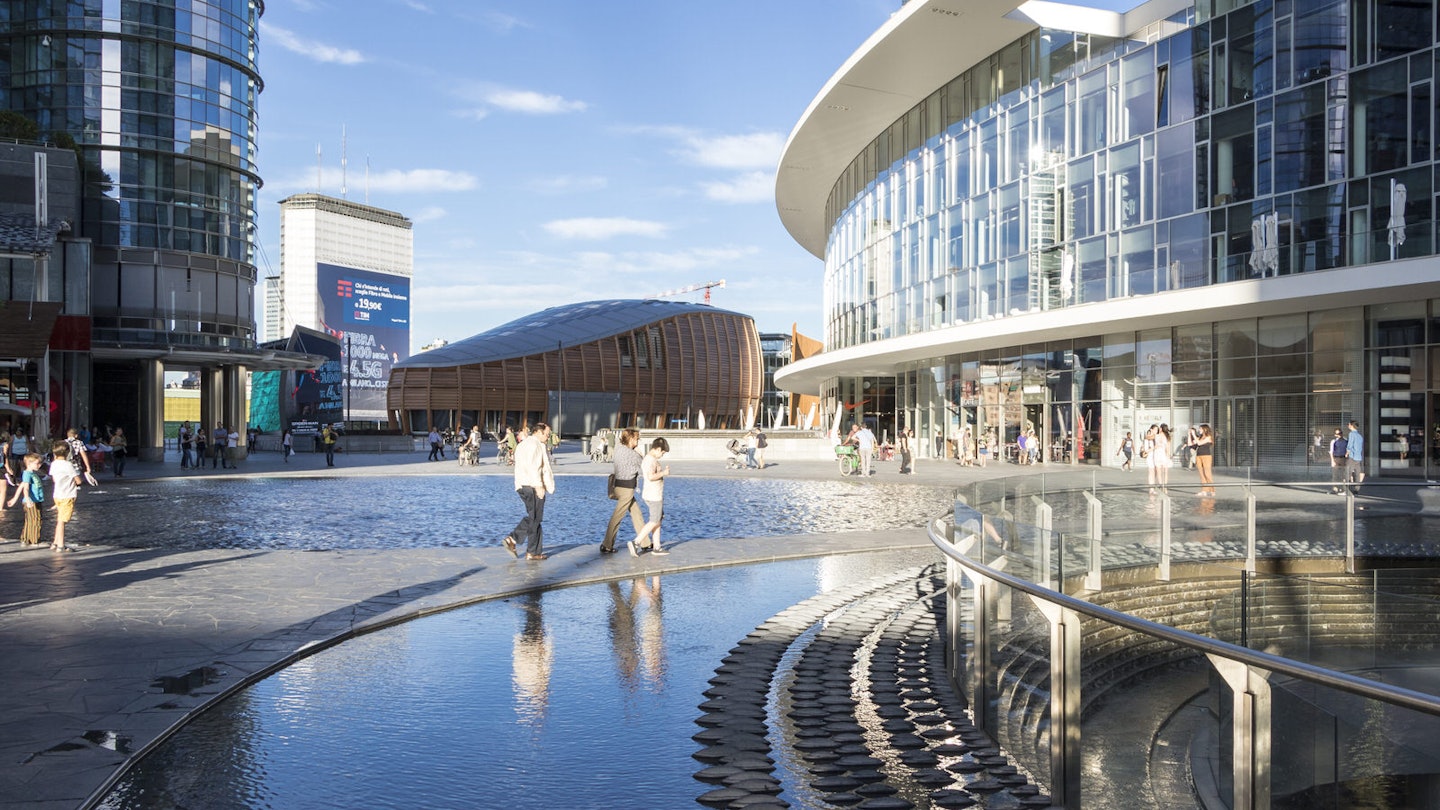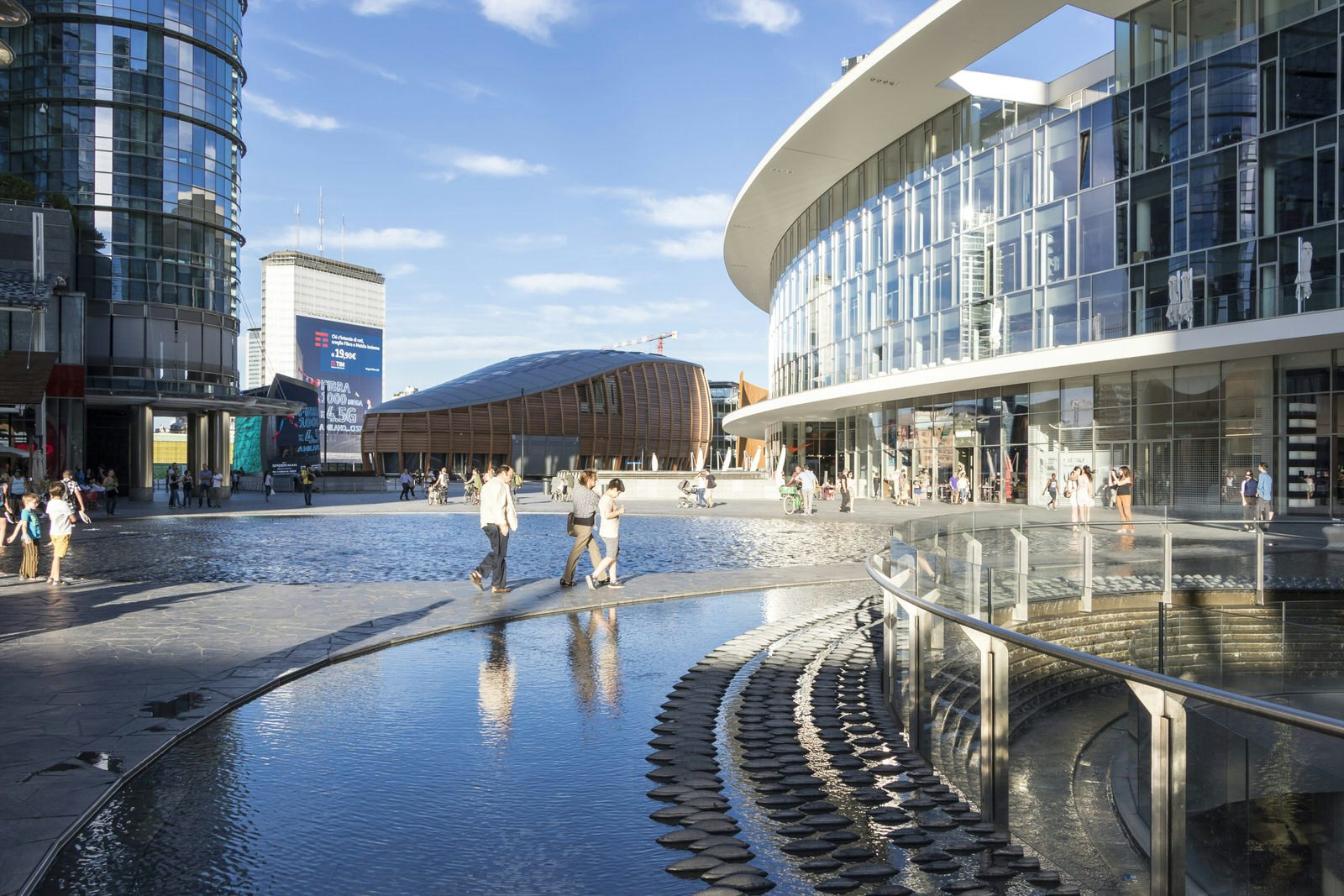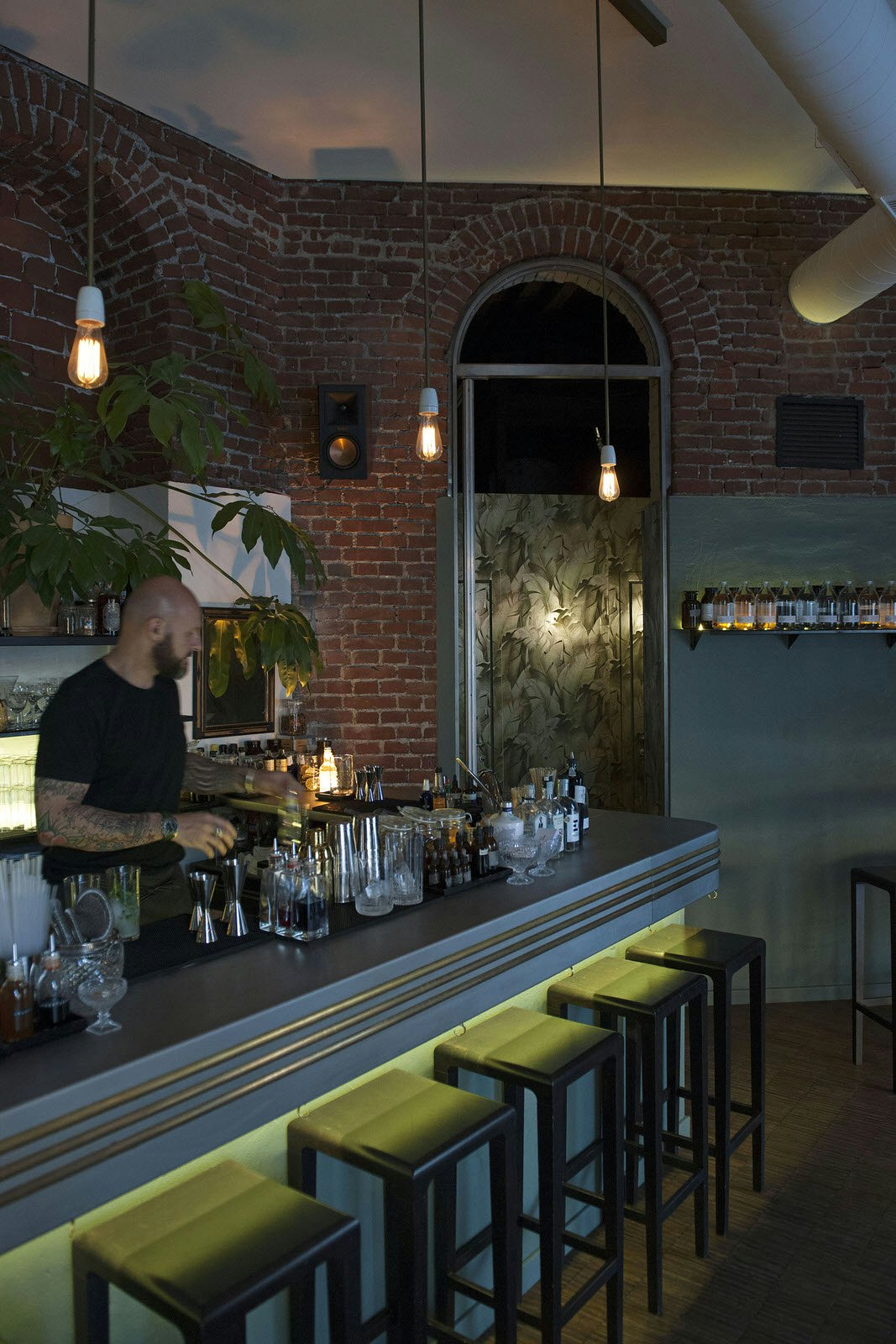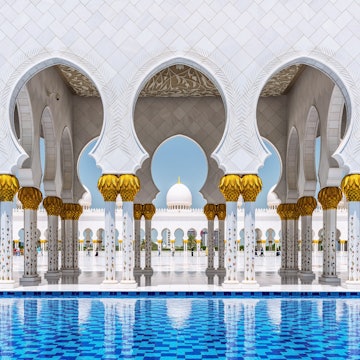

Milan is a city flourishing with new urban landscapes such as the Gae Aulenti square ©Danyskar/Shutterstock/Lonely Planet
Before Expo 2015 Milan had long been considered the forgotten sibling to more resplendent Venice, Florence and Rome. While they stole the limelight with their artistic heritage and haunting ruins, Milan was considered ‘grey’ and even worse ‘industrial’. Now with a changing urban landscape that includes shiny skyscrapers and lush green spaces, the tide is turning for this modern, elegant city.

Duomo’s historic beauty
There’s no missing this pristine vision in pink-veined marble, dripping with statues, gargoyles and dazzling spires (135 to be exact). Not only is it Milan’s crowning glory that sits in the city’s physical and cultural heart – it also has a story to tell. The Duomo’s construction required thousands of workers, a new canal system to be built to transport the marble from the quarries of Candoglia, and took nearly six long centuries to build. In fact, to say in Milanese ‘longh cume la fabrica del domm’, which roughly means ‘as long as it took to build the Duomo’, refers to a task that never seems to end. If you’re interested in the history and legacy of this fascinating landmark, the Museo del Duomo has rooms of sculptures, stained glass and various materials connected with its construction.
The architectural makeover
This is a city that’s slowly embracing modernisation, so it’s not all about the iconic Duomo when it comes to standout architecture. Since 2011 the soaring UniCredit skyscraper (Italy’s tallest), designed by Argentinian star architect César Pelli, has been stealing some of the attention. And it hasn’t stopped there. Nearby Bosco Verticale, the ground-breaking residential high-rise overflowing with trees and greenery, has everyone talking about it as a model for future cities. The Darsena (Milan's dock area) has also been reflooded and revamped; no longer muddy and wildly overgrown, it’s sporting a scenic pedestrian walkway, curated gardens and a covered market. The Galleria Vittorio Emanuele II has a new shine to it, with a much-needed clean up sponsored by fashion powerhouses Prada and Versace. Currently in progress, the ambitious CityLife project will bestow upon Milan three glittering skyscrapers and an enormous shopping district, along with the city’s second biggest park.

A cutting-edge design festival
The city has long been synonymous with design and Fuorisalone is Milan’s much lauded week-long design festival. While it occurs contemporaneously with the industry event Salone del Mobile, it’s an entirely different affair – and not only for die-hard design enthusiasts. Pop-ups, wildly creative temporary events, installations by big-name brands and unknown designers, as well as parties in secret locations, are just some of the appeal. In locations all over the city, it’s the time when Milan brings its creative and playful side to the fore.
Da Vinci’s infinite genius
The quintessential Renaissance man was born in Florence but spent 17 years in Milan, leaving his distinctive and indelible mark on the city – he even had a hand in modernising the canal system. You can admire various artworks, such as a fresco of entwined mulberry branches in the Sala delle Asse of Castello Sforzesco, but of course, what everyone wants to see is the dramatic Last Supper, still magnificent despite deterioration attributed to time and the medium. Just down the road, the vineyard given to him by his patron the Duke of Milan, Ludovico Sforza, has been painstakingly recreated and offers visitors a sneak peek into his private life. For those wanting to delve deeper into his genius, the Codex Atlanticus at Biblioteca Ambrosiana holds his precious sketches and scribblings, while both the Museo Nazionale Scienza e Tecnologia Leonardo da Vinci and the temporary Leonardo3 exhibition bring his brilliant models to life.

The fashion-forward immersion
Milan is one of the fashion capitals of the world, famed for its fashion weeks and well-heeled citizens, while its beating heart is the aptly named Quadrilatero d’Oro (the ‘Golden Rectangle’). Formed by Via Monte Napoleone, Via Alessandro Manzoni, Via della Spiga and Corso Venezia, it has a dizzyingly high concentration of haute couture, with flagship stores from Prada, Gucci, Fendi and more, posing prettily side by side. This is the posh side of town and the streets ooze refinement and charm, that is if you manage to see past the crowd of sophisticated shoppers and gawping tourists.
World-class cuisine (and not just Italian)
Italy’s most cosmopolitan city has an exciting food scene that goes far beyond classic Italian and Milanese cuisine. The culinary scene is brimming with creativity and experimentation, both in terms of food and atmospheric settings. Tokuyoshi is a perfect example of the former. Created by Yoji Tokuyoshi, ex sous chef of world-renowned Osteria Francescana, his restaurant is a gastronomic journey between Japan and Italy, which offers up such surprises as an aubergine panna cotta. Contraste, by young rising star chef Matias Perdomo, offers a transformative eating experience in an artistic setting decorated with blue ‘clouds’ and red silicon chandeliers. While Carlo e Camilla in Segheria, by elite chef Carlo Cracco, presents modern Italian cuisine in a stark renovated sawmill that makes you feel like you’re dining in the middle of a dramatic theatre set.

A stellar (and underrated) cocktail scene
Not many people seem to know about Milan’s illustrious bar scene. Nottingham Forest is a world-famous mixology bar, which warrants a place on any international best bar list. Dario Comini is the mad genius behind its wild concoctions, which might just come in a bathtub or a skull. The Botanical Club is also blazing its way through the ranks. Italy’s first small-batch gin distillery not only offers up its excellent house brand and an extensive list of quality-grade gins, it creates sublime cocktails that often feature an unusual touch, such as Tonka beans or a rich lavender syrup.
https://shop.lonelyplanet.com/products/pocket-milan-4















